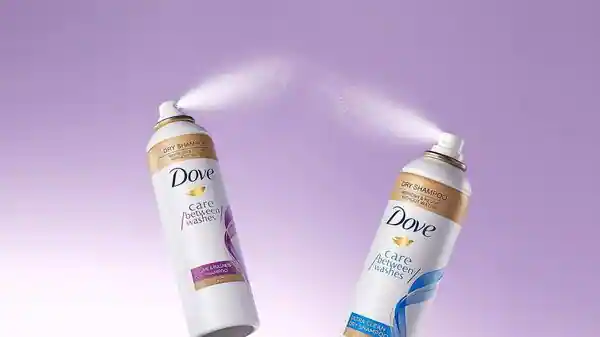US consumers got quite a shock after Unilever recalled some popular brands of dry shampoos. “Unilever United States today issued a voluntary product recall to the consumer level of select lot codes of dry shampoo aerosol products produced prior to October 2021 from Dove, Nexxus, Suave, TIGI (Rockaholic and Bed Head) and TRESemme due to potentially elevated levels of Benzene,” the company said in a statement. This comes after the company found ‘potential elevated levels’ of benzene, a carcinogen that can cause cancers and blood disorders in these popular products. But what are dry shampoos? And what do we know about the recall? Let’s take a closer look: What are dry shampoos? Dry Shampoo is a product in powder or spray form that you can use to clean hair without wetting it, according to Collins Dictionary. The Cleveland Clinic states that these alcohol or starch based sprays remove grease and oils from the hair and add volume. Some dry shampoo have aerosol spray while some have tinted powder to match hair colour, as per the website. What do we know about benzene? As per the US Food and Drug Administration, benzene, a carcinogen, is all around us.
Worse, human beings are exposed to it every day and from multiple sources.
“Exposure to benzene can occur by inhalation, orally, and through the skin and it can result in cancers including leukaemia and blood cancer of the bone marrow and blood disorders which can be life-threatening. Benzene is ubiquitous in the environment. Humans around the world have daily exposures to it indoors and outdoors from multiple sources,” the FDA website states. Nima Majlesi, director of medical toxicology at Staten Island University Hospital, part of Northwell Health in New York, told the website HealthLine benzene is specifically associated with leukemia particularly acute myeloid leukemia (AML). ‘Don’t manufacture or sell dry shampoos in India’ The recall came after an analytical lab called Valisure, based in New Haven, Connecticut, made the discovery of benzene in these products. “Given what we’ve seen, it unfortunately makes sense that other consumer-product categories, like aerosol dry shampoos, could be heavily affected by benzene contamination and we are actively investigating this area,” Valisure CEO David Light told Bloomberg. Unilever did not reveal the amount of benzene found in the products, but said it was recalling them out of an “abundance of caution” after having seeing reports. “Based on an independent health hazard evaluation, daily exposure to benzene in the recalled products at the levels detected in testing would not be expected to cause adverse health consequences. Unilever US recalls these products out of an abundance of caution. Unilever has received no reports of adverse events to date relating to this recall,” the company said as per Mint. “An independent health hazard evaluation concluded that levels of benzene detected do not pose a health risk. If consumers have any questions, they can visit www.UnileverRecall.com for more information,” the outlet quoted a HUL spokesperson as saying.
The company further said, “HUL doesn’t manufacture or sell dry shampoos in India”.
However, according to Business Standard, the product is being sold in India on websites such as Nykaa and Amazon. But experts say consumers need not worry. “It’s the dose that makes the poison,” Majlesi said, adding that most incidents occur via inhalation and across many industries. “It seems the amount of benzene in these products is very low,” she added. Majlesi further said that it’s unlikely that the amount of exposure could lead to a high risk of leukemia. “Remember, we are exposed to benzene on a daily basis in varying degrees and concentrations,’ she pointed out. “The exposure from these dry shampoos, though not insignificant, are still very low and unlikely to lead to significant consequences.” Unilever made the announcement on 18 October, and it was published by the Food and Drug Administration (FDA) on 21 October. The recall is in connection with those products that were manufactured before October 2021. The move once again brings under the scanner the safety of aerosols in personal-care products. According to Bloomberg, a number of aerosol sunscreens have been pulled from shelves in the last one year and a half, such as Johnson & Johnson’s Neutrogena, Edgewell Personal Care Co.’s Banana Boat and Beiersdorf AG’s Coppertone along with spray-on antiperspirants like Procter & Gamble Co.’s Secret and Old Spice and Unilever’s Suave. With inputs from agencies Read all the Latest News , Trending News , Cricket News , Bollywood News , India News and Entertainment News here. Follow us on Facebook , Twitter and Instagram .
)